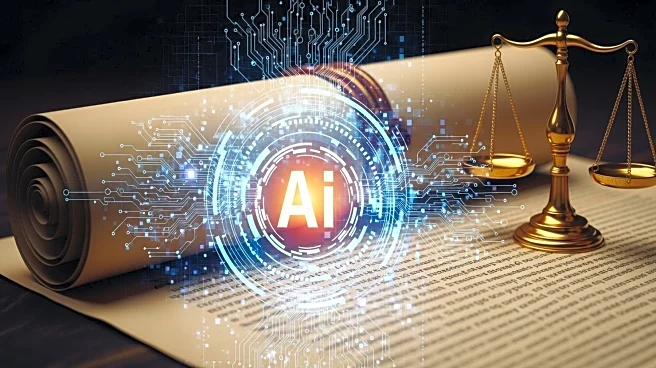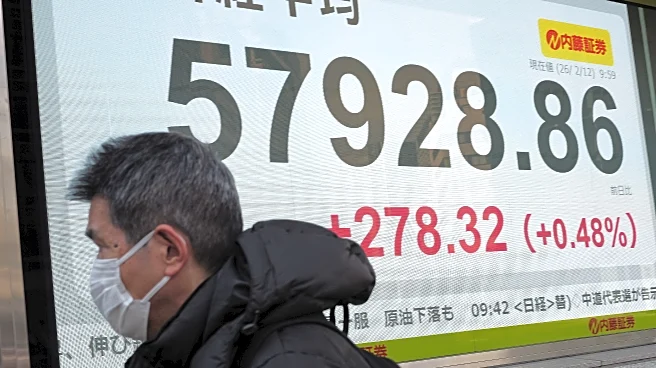What's Happening?
The ability of AI to generate logos, slogans, and photo-realistic products is testing traditional intellectual property protections. Companies are facing challenges in securing brand identities as AI complicates ownership and trademark registration. The US Copyright Office has stated that works created entirely by machines cannot be copyrighted, raising questions about the protectability of AI-generated content. Legal practitioners must navigate these complexities, ensuring human oversight in filings and addressing potential infringement issues.
Why It's Important?
AI's ability to mimic existing brands and create new ones poses significant challenges for intellectual property law, which traditionally relies on human authorship. This development could lead to increased legal disputes over brand ownership and trademark infringement, impacting businesses' ability to protect their identities. As AI continues to evolve, companies must adapt their strategies to safeguard their intellectual property, potentially requiring new governance frameworks and cross-disciplinary collaboration.
What's Next?
Businesses will need to establish clear governance frameworks for AI use in brand creation and demand regular reporting on IP enforcement. Legal teams must be prepared to address the unique challenges posed by AI-generated content, including potential disputes over ownership and infringement. Companies may also need to strengthen personal brands to differentiate themselves in an era where AI can mimic voices, faces, and logos.
Beyond the Headlines
The rise of AI-generated content may lead to broader discussions about the ethical implications of AI in creative industries. As AI tools become more prevalent, there may be calls for updated legal frameworks to address the unique challenges they present. This could involve redefining concepts of authorship and ownership in the context of AI, potentially leading to significant shifts in intellectual property law.












